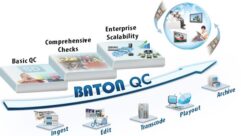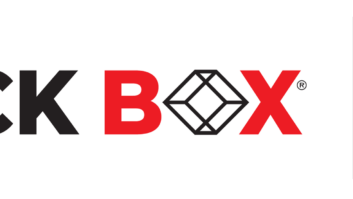Effective cold calls: Making the first contact with potential customers maybe a difficult task, but its importance should not be overlooked.
Feb 1, 1998 12:00 PM,
Ted Tate
If I were to list the biggest problems in my many years of managingsalespeople in business, getting them to make effective cold calls wouldjust about top the list. Even those who don’t normally use cold callsshould be able to do so when an opportunity presents itself.
In our economy, the actual cost to a company for a salesperson to make aphysical sales call is quite high. It is frequently bypassed for directmail promotions and telemarketing (or the more recent buzz word,telesales). Some firms today use the telephone to call on their smallercustomers and have salespeople focus on the large-volume accounts.
The downside is when outside salespeople are focused only on largeaccounts, they are usually working by appointment and often have largeblocks of unused time because of such things as appointment cancellationsand buyers being very brief. In just about all businesses, there are primeselling hours when salespeople need to focus on nothing but selling.
I can recall walking into my offices to see them filled with salespeoplesitting around bored, killing time. “Why are you here in the middle of theday?” I’d ask. “I ran out of appointments,” they would reply, feeling fullyjustified to kill prime selling time shooting rubber bands across theoffice and collecting a salary.
“Did you call on the people next door to your appointment? Did you go outin your territory and work some of those prime industrial accounts wetalked about?” I’d inquire.
“Well, no, I have reports to do (a doctor’s appointment to go to, pricequotes to finish, phone calls to make), so I’ll be busy this afternoon. Iplan to do some prospecting tomorrow. See, it’s right here on myworksheet.” Of course, some other excuse takes over tomorrow .
For some people, going to a stranger and talking to them, let alone tryingto sell them something, is unsettling. For some, it comes from childhood.For others, it is a self-esteem issue. Salespeople won’t tell you that.They know it’s part of their job, yet deep inside, some cringe at the verythought of cold calls. Why do sales experts feel cold calls, in this day ofcommunication miracles, still produce the very best prospects? Why are yourclosing ratios on cold- call prospects higher than other lead sources?
When cold calling and qualifying face-to-face, you can very quicklydetermine how serious a prospect someone is. You can determine needs,ability to pay and interest level in a few brief minutes with a fewwell-chosen questions. If they don’t qualify, you have not invested a lotof time. Those that do qualify can be brought close to closing in a veryshort period of time. It’s not unusual in some cases to complete a sale onthe spot.
Another big advantage is the ability to show or demonstrate something. Manypeople have no interest until they find out how they benefit.
Direct mail, referrals, telemarketing leads and every other lead source donot come close. Only on a cold call can the salesperson complete or getclose to completing the sales process.
I love to hear the argument that you need appointments to see buyers.Although I agree that with the larger firms this is true, territories areloaded with smaller accounts where salespeople can productively spendunexpected free time calling on people readily available.
Why are cold calls resisted so? Because when all the excuses are dealtwith, when all the baloney is sliced, some people simply fear it. The termused by professional trainers is call reluctance.
One of the ways you can avoid problems with cold calling is by recruitingwell. When interviewing for sales, I have a list of job duties I show thecandidates with cold calling at the top. I explain my expectations. Only afew outright say they wouldn’t cold call. Some will start explainingreasons they probably won’t have to. I listen, then explain it ismandatory, no matter what the excuse or level of business they sell andthat we monitor for that. The look on their face and their answer determineif we consider them further. I know it’s much harder to hire salespeopledoing that, but what a difference having real sales prospectors makes,especially in a highly competitive business.
Also, have a solid, written work plan for salespeople, supported by goodreports that let you know what they are doing, where they are doing it andwhen. Anyone who hires salespeople and then tells them to go out and bringin some business deserves everything they get. Have a time-management planin place that allows off-hours for writing reports, quotes, phone calls andthe like and leaves valuable prime selling hours open for face-to-facecontact with prospects.
Determine your prime selling times and make it a rule salespeople must notperform non-selling tasks (reports, proposals, working on prospect lists inthe office) during these hours. Those hours should be considereduntouchable.
Train constantly. Selling is a profession, and as with any otherprofession, it requires constant study to be truly effective. Goodsalespeople always study new ways to do their jobs better. I get veryuncomfortable when salespeople tell me they don’t need any additionaltraining because they already know how to sell. I’ve been selling for a lotmore years than I’ll admit, and I’m still learning new ideas almost daily.Encourage salespeople to attend sales seminars, read books on selling,listen to audio tapes on selling in their cars and post sales motivationalposters in the office.
Good luck and good selling!










